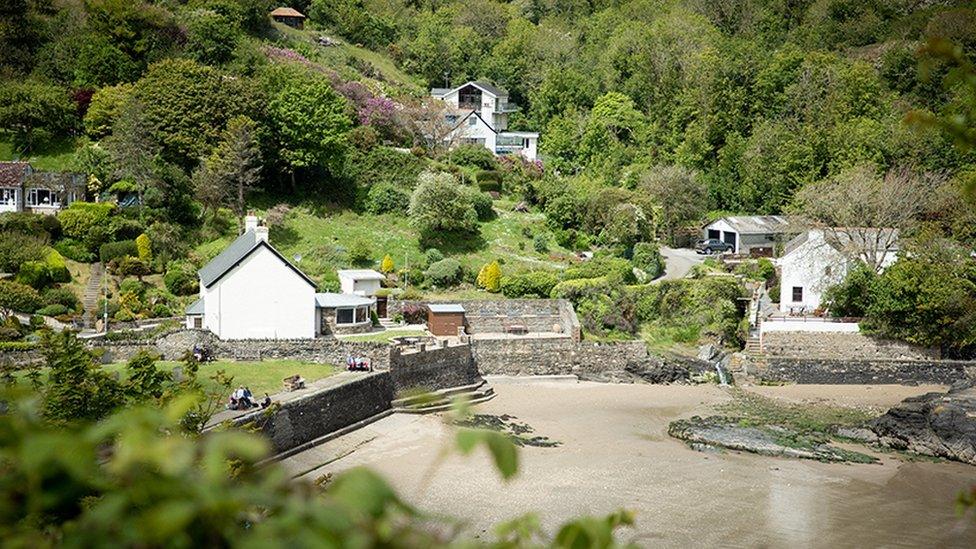Council tax: Some second home owners could avoid increase
- Published
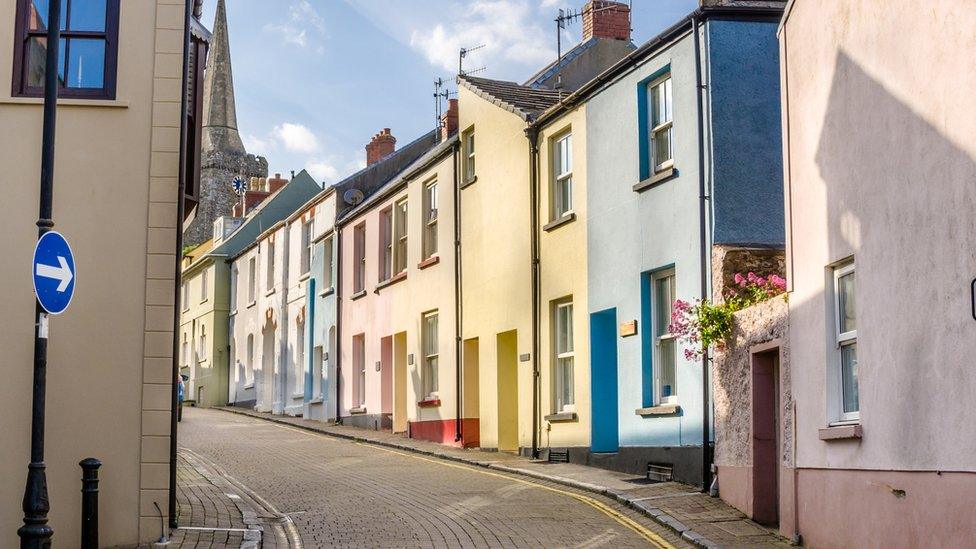
There were 24,873 registered second homes in Wales at the start of 2021
Some second home owners could avoid paying up to 300% council tax after proposed regulations were changed.
From next April, councils in Wales will be able to raise the premium from the current level of 100% for those who own a second property.
But some properties that are restricted by planning conditions, such as short-term holiday lets, could now be exempt.
The Welsh Conservatives called it a "major U-turn" by the Labour-led Welsh government.
Minister for Finance and Local Government Rebecca Evans argued the change would give local authorities "more flexibility" and make the system fairer.
According to government body Stats Wales, there were a total of 23,974 second homes in Wales subject to council tax in 2022.
While local authorities are currently able to charge second home owners double the rate (or 100% more), not all do.
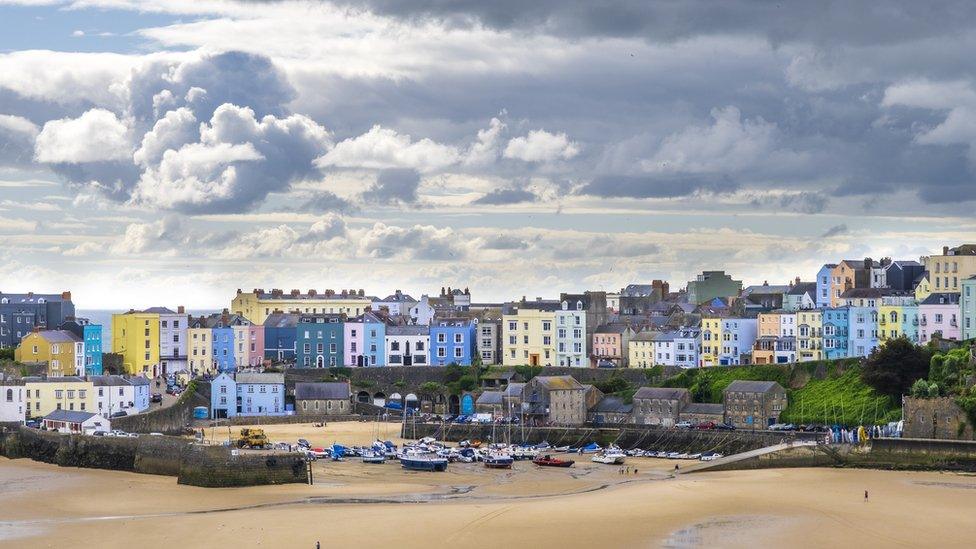
Pembrokeshire, along with Gwynedd, already has a 100% council tax premium on second homes
Gwynedd and Pembrokeshire, for example, which have the largest number of second homes - 3,746 and 3,794 respectively - are charging a 100% premium.
A 25% increase is added in Conwy and Ceredigion, while it is 50% in Anglesey, Flintshire, Denbighshire and Powys.
The controversial new changes would see councils able to charge up to 300% more from next year.
However, a self-catering property could be classified as non-domestic and eligible to pay a non-domestic rate instead if it is made available to let for at least 252 days in any 12-month period, and actually be let for at least 182 days.
But under new proposals, any holiday home that fails to reach this will be exempt and subject to the standard rate of council tax if the property is restricted by planning conditions.
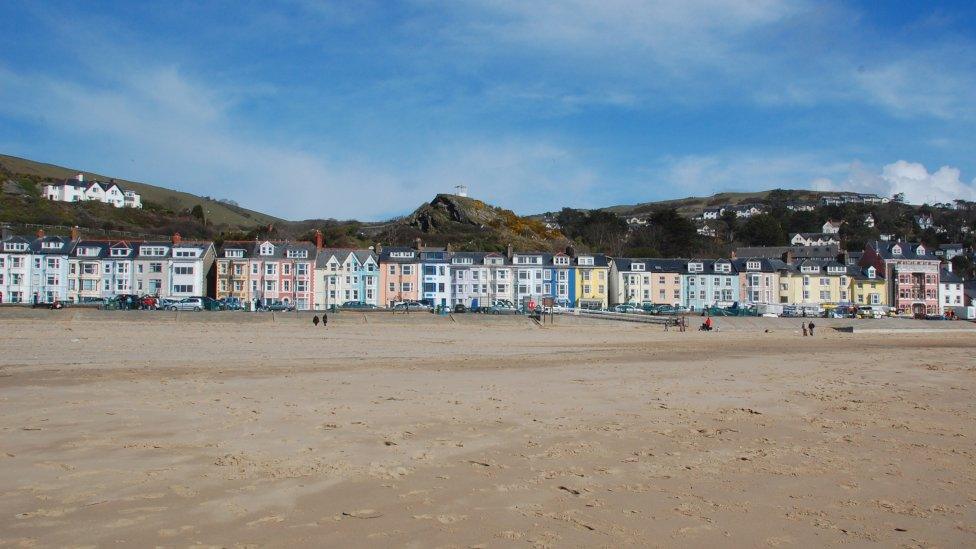
Gwynedd has the highest number of second homes in Wales
Those affected include houses that can only be used as a short-term holiday let or those that cannot be used as someone's main residence.
The changes, according to the Welsh government, are intended to ensure the system operates as "fairly as possible".
"I recognise the strength of feeling among self-catering operators in response to the changes to the letting criteria, and I have listened to the representations from individual businesses and industry representative bodies," said Ms Evans.
"These changes will give more flexibility to local authorities and will ensure that the contribution property owners make to the communities where they have homes or run businesses is fair."
Welsh Conservative housing spokeswoman Janet Finch-Saunders called it a "major U-turn", adding: "I have been highlighting for months the madness of the fact that properties which only have planning permission to be holiday lets were going to be charged a second home premium."
She added: "What we now need them to realise is that there are genuine holiday lets which cannot reach the 182 threshold because of the seasonal nature of tourism.
"Rather than leaving the fate of businesses and people's livelihoods to the discretion of local authorities, the 182 barrier needs to be lowered quickly."
A consultation is open until 22 December.
- Published16 June 2022
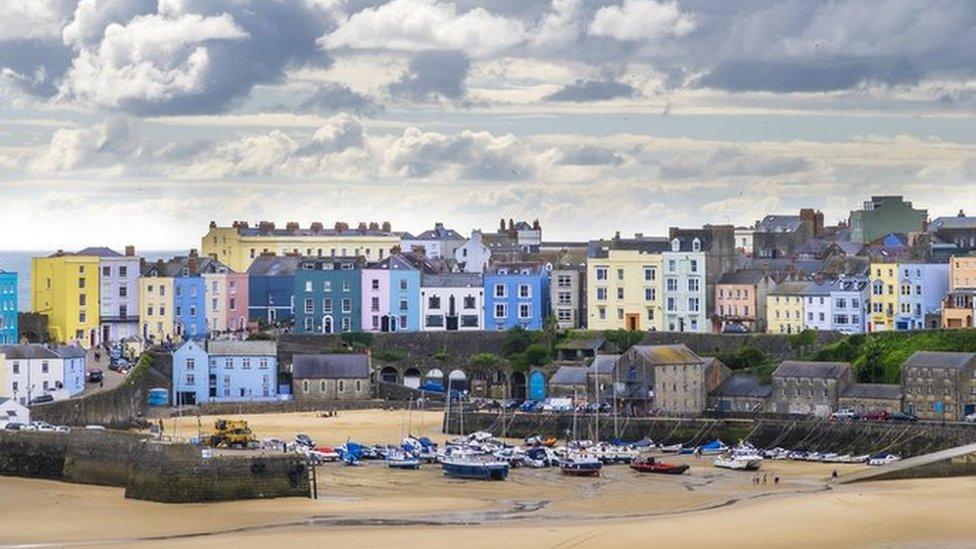
- Published2 March 2022
